Water Resources

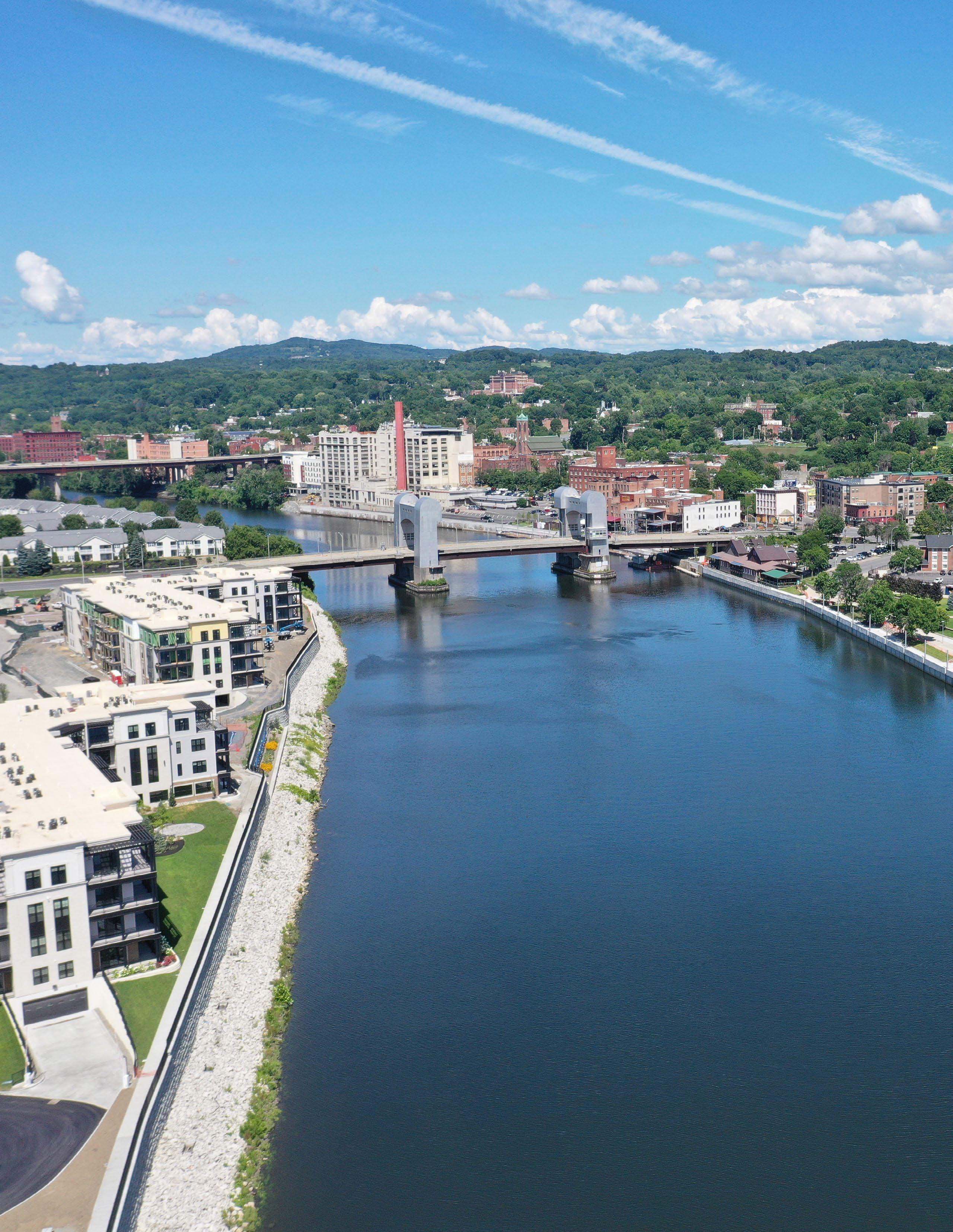





What is the Infrastructure Investment and Jobs Act?
The Infrastructure Investment and Jobs Act (IIJA), also known as Bipartisan Infrastructure Law (BIL), enacted in November 2021, provides more than $1.0 trillion in funding to improve essential infrastructure in the water, transportation, power and grid, aviation, and environmental remediation sectors. Funding is provided through formula grants, loans, and competitive grant opportunities and includes $550 billion of new federal spending. Local governments and utilities have a once-in-a-generation opportunity to restore their foundations and energize their communities by using the funds to build, repair and reinvigorate infrastructure that has been deteriorating for decades. The IIJA is expected to bring much-needed investment in the country’s aging water infrastructure, with funding focusing on drinking water, stormwater, and wastewater systems.


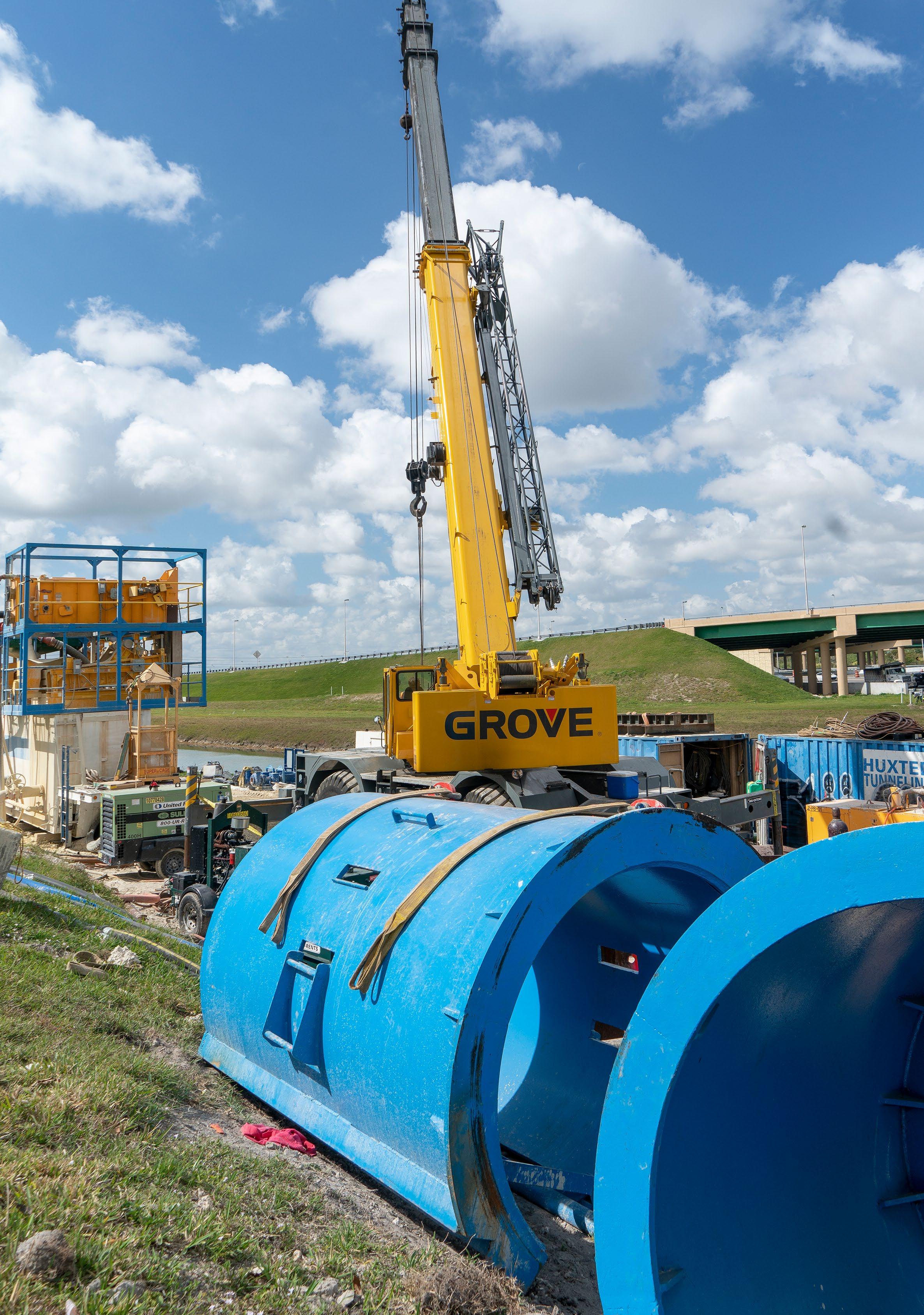


Aging water and wastewater infrastructure, emerging contaminants, and asset management have emerged as critical issues demanding innovative solutions that we are prepared for and eager to deliver.
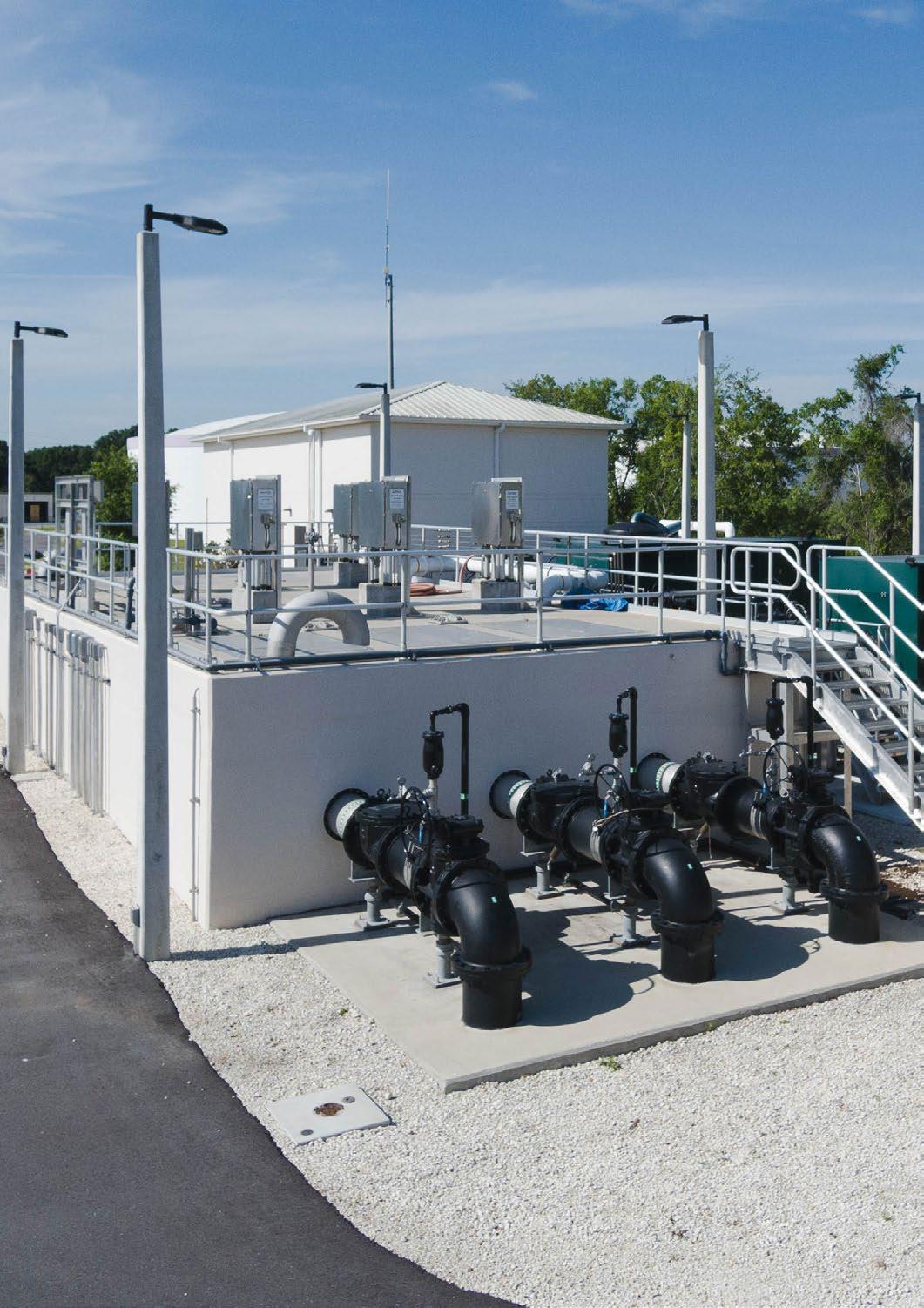 Tim George, Water Resources Business Line Director
Tim George, Water Resources Business Line Director
America’s water infrastructure poses a significant risk. According to the most recent (2021) American Society of Civil Engineers (ASCE) Report Card for America’s Water (2021), drinking water, stormwater, and wastewater infrastructure received grades of C-, D, and D+, respectively. Every two minutes, there is a water main break, which results in an estimated 6 billion gallons of treated water loss in the U.S. every day. In addition, nearly 13 million acres of reservoirs, ponds, and lakes and 600,000 miles of rivers and streams are considered impaired, with more than 16,000 wastewater treatment plants, on average, functioning at 81% of their designed capacities.
The IIJA presents an opportunity to dramatically improve water infrastructure for communities across the U.S. Through this Act, more than $50 billion will be allocated over five years (federal Fiscal Years 2022 through 2026) for water infrastructure needs. Funding focuses on three primary areas: drinking water, clean water, and water resiliency. In addition, the IIJA includes dedicated funding to address emerging contaminants including PFAS (per- and polyfluoroalkyl substances), widely known as “forever chemicals,” and lead service lines.
$11.7 Billion
Drinking Water State Revolving Funds
• 49% of funds will be provided to communities as grants or principal forgiveness loans.
• 51% of funds will be available to communities for low-interest loans.
• State match is reduced to 10%.
$11.7 Billion
Clean Water State Revolving Funds
• 49% of funds will be available for grants or principal forgiveness loans.
• 51% of funds will be available for low-interest loans.
• State match is reduced to 10%.
$15 Billion
Lead Service Line Replacement through the Drinking Water State Revolving Funds
• 49% of funds will be provided to communities as grants or principal forgiveness loans.
• 51% of funds will be available to communities for low-interest loans.
• State match is not required.
$4 Billion
Addressing Emerging Contaminants through the Drinking Water State Revolving Funds
• Funding can be used to remediate PFAS in drinking water.
• All funds are provided to communities as grants or principal forgiveness loans.
• State match is not required.
$5 Billion
Addressing Emerging Contaminants in Disadvantaged Communities
• Funding through Small, Underserved, and Disadvantaged Communities Grants.
• Funding can be used to remediate PFAS in drinking water.

• Funding is provided as grants.
• State match is not required.
$1 Billion
Addressing Emerging Contaminants
• Funding through Clean Water State Revolving Funds.
• All funds provided as grants or principal forgiveness loans.
• State match is not required.
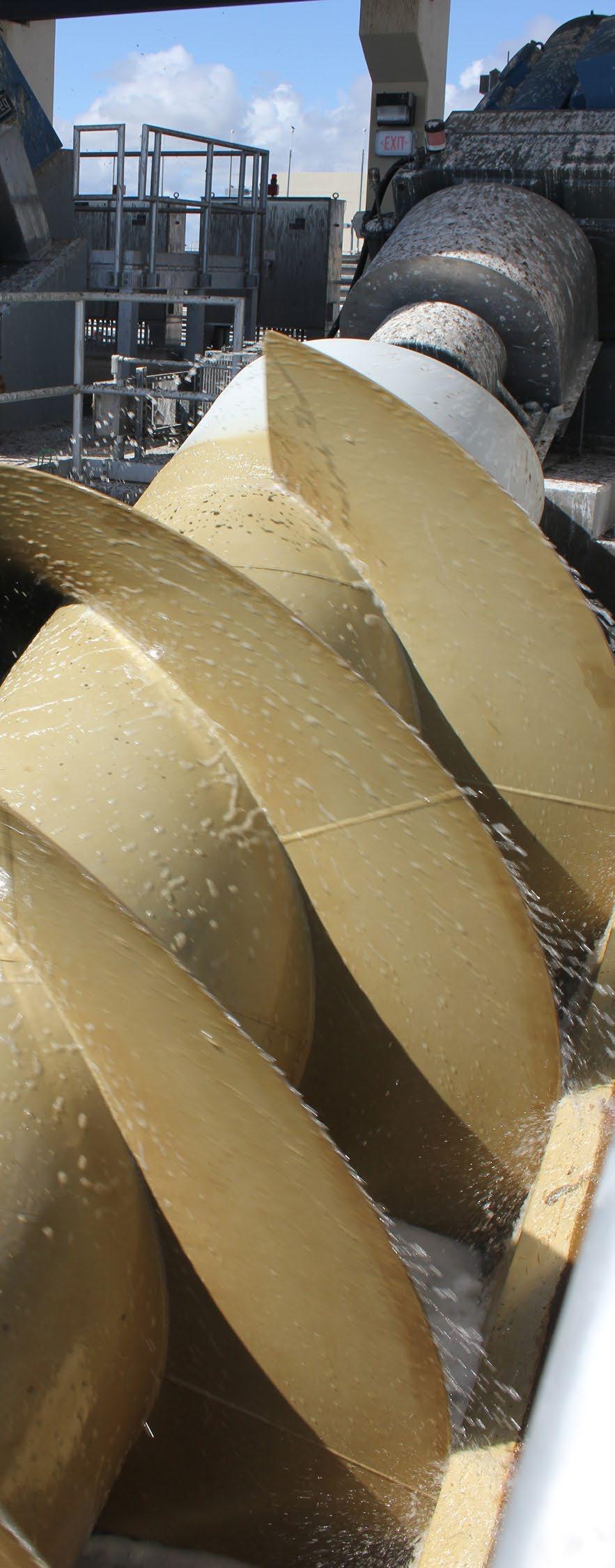
The Wastewater Energy Efficiency Grant Pilot Program allows owners or operators of publicly owned facilities to initiate projects that create or improve waste-toenergy systems. The IIJA has appropriated $100M in grant funding for wastewater treatment facilities.
Urban stormwater is a significant source of water pollution and can be a public health concern. Stormwater runoff can collect pollutants and chemicals, conveying them to nearby waterways. During intense storms, stormwater mixed with domestic and industrial wastewater in combined sewers can also cause sewer overflows. Managing runoff remains a complex environmental challenge for local communities.
The Sewer Overflow and Stormwater Reuse Municipal Grants Program allows $1.4B in funding for municipalities, focusing strongly on rural and financially distressed communities, to control and treat sewer overflows, promote stormwater reuse, and provide public notification systems for overflow events.

CHA evaluated the city’s three wastewater pump stations and 3.0 MGD wastewater treatment plant, providing facility-wide design, preliminary engineering reports, and a capital improvement plan.

CHA assisted the Evansville Water and Sewer Utility in implementing their Integrated Overflow Control Plan (IOCP) to address combined sewer overflow (CSO) issues to improve water quality while beautifying the area near the Ohio River.
CHA manages Charlotte’s sanitary sewer rehabilitation program. Since 2001, we performed all collection sewer assessments, new, replacement, and rehabilitation sewer design, managed bidding procedures, and provided construction administration and inspection services for all projects.
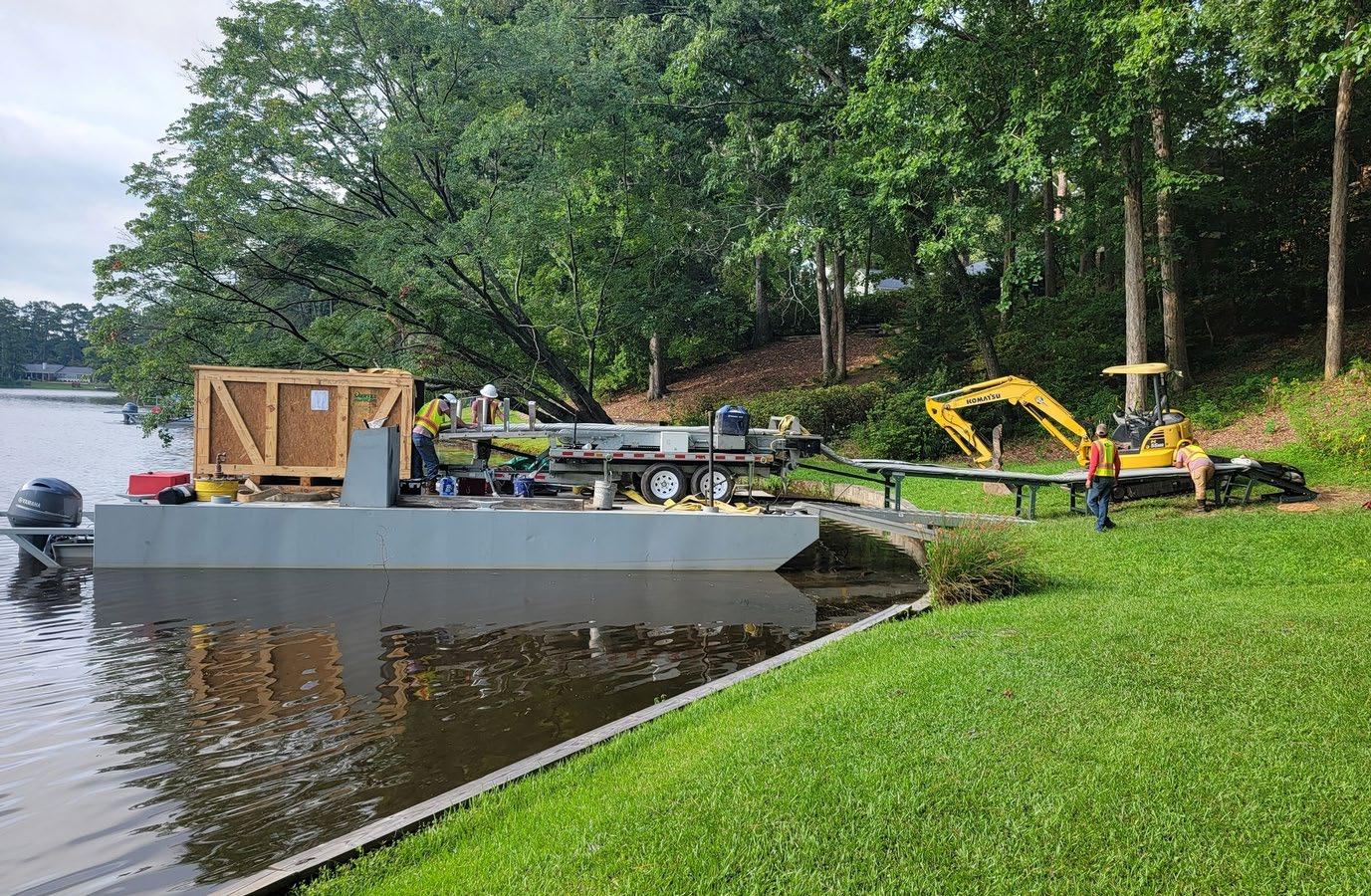
Clean water is essential for a high quality of life. Safe and affordable drinking water is a fundamental building block of every community. Our families, schools, businesses, and economy depend on clean water for drinking, washing, health, farming, manufacturing, recreation, and living. The EPA administers two State Revolving Fund Programs — the Clean Water State Revolving Fund (CWSRF) and the Drinking Water State Revolving Fund (DWSRF) to help fund our country’s water infrastructure.
Authorized by the Clean Water Act, the CWSRF program is a federal-state partnership between the EPA and the states to provide financial assistance to communities for water infrastructure projects, including constructing municipal wastewater facilities, controlling nonpoint source pollution, mitigating stormwater runoff, building green infrastructure, protecting estuaries and other water quality projects that protect our water sources.
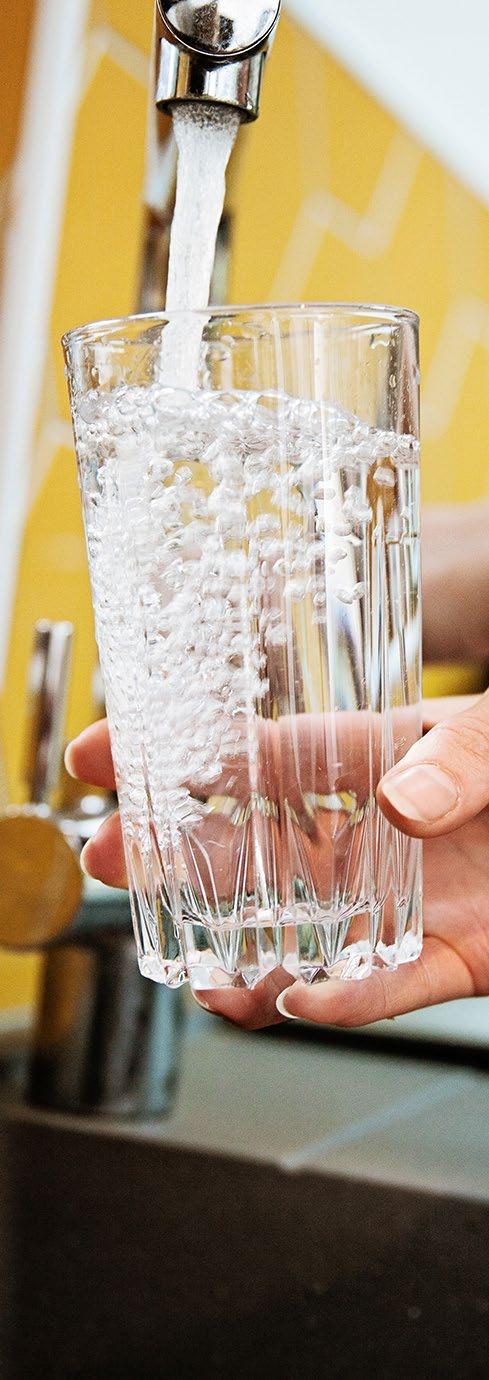
The DWSRF program is a financial assistance program to help water systems and states reach health objectives included in the Safe Drinking Water Act (SDWA). The EPA awards grants to each state based on the appropriated funding from Congress, requiring a 10% match from 2022-2023 and a 20% match from 2024-2026. The federal and state match is then bundled into a dedicated revolving loan fund providing loans and authorized assistance to eligible water infrastructure projects, including improved drinking water treatment, water distribution, improved water supply source, and replacing or constructing finished water storage tanks.
Through the DWSRF, the Lead Service Line Program invests $15 billion toward lead service line replacement. This program aims to reduce lead in drinking water by removing lead service lines, emphasizing assisting disadvantaged communities. This funding is provided to states with no match requirement.
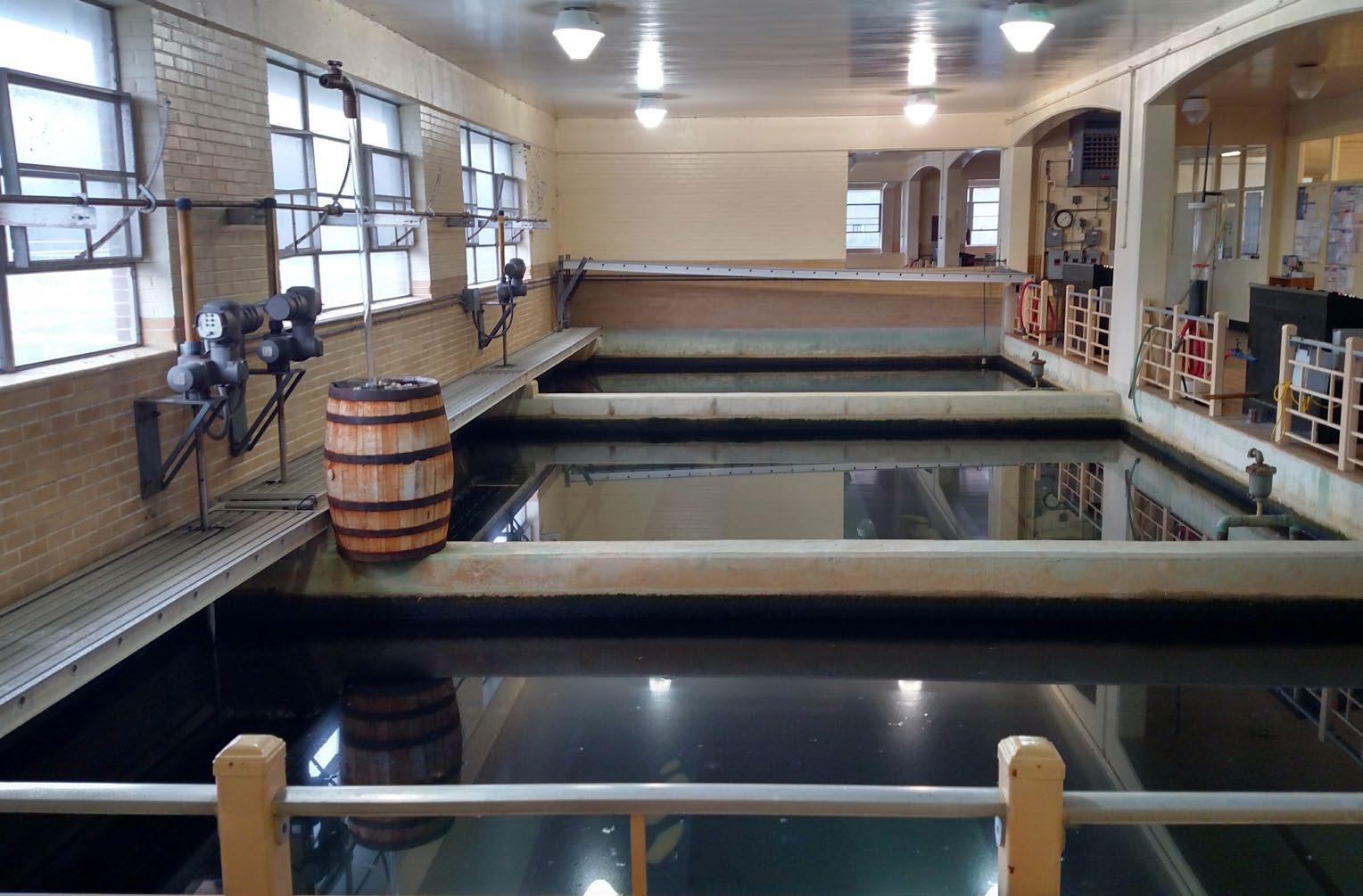
CHA developed the preliminary engineering report and contract documents for the $48M upgrade project. We designed upgraded filter systems, chemical feed and storage systems, residual handling systems, backup power and SCADA improvements.
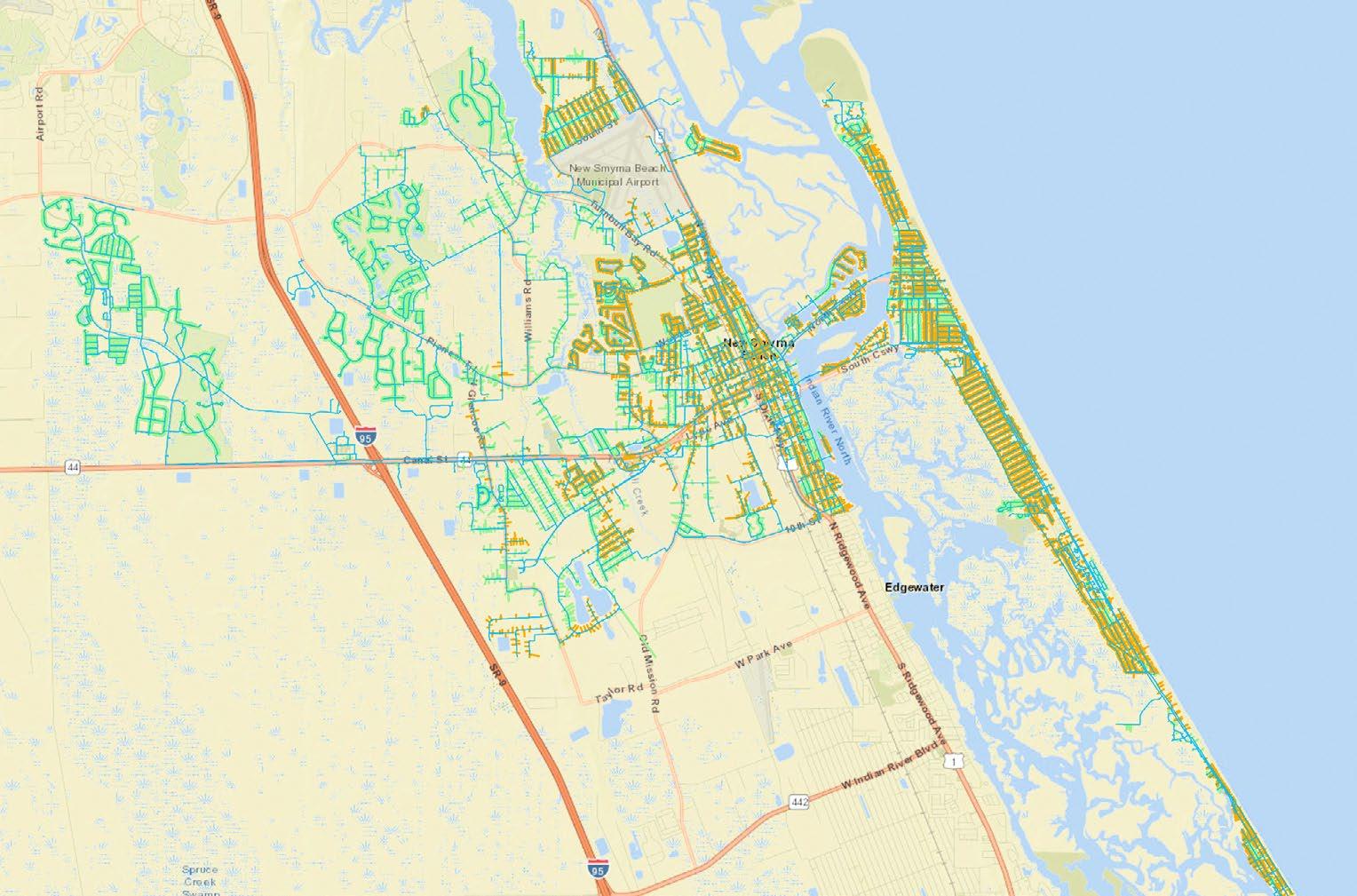
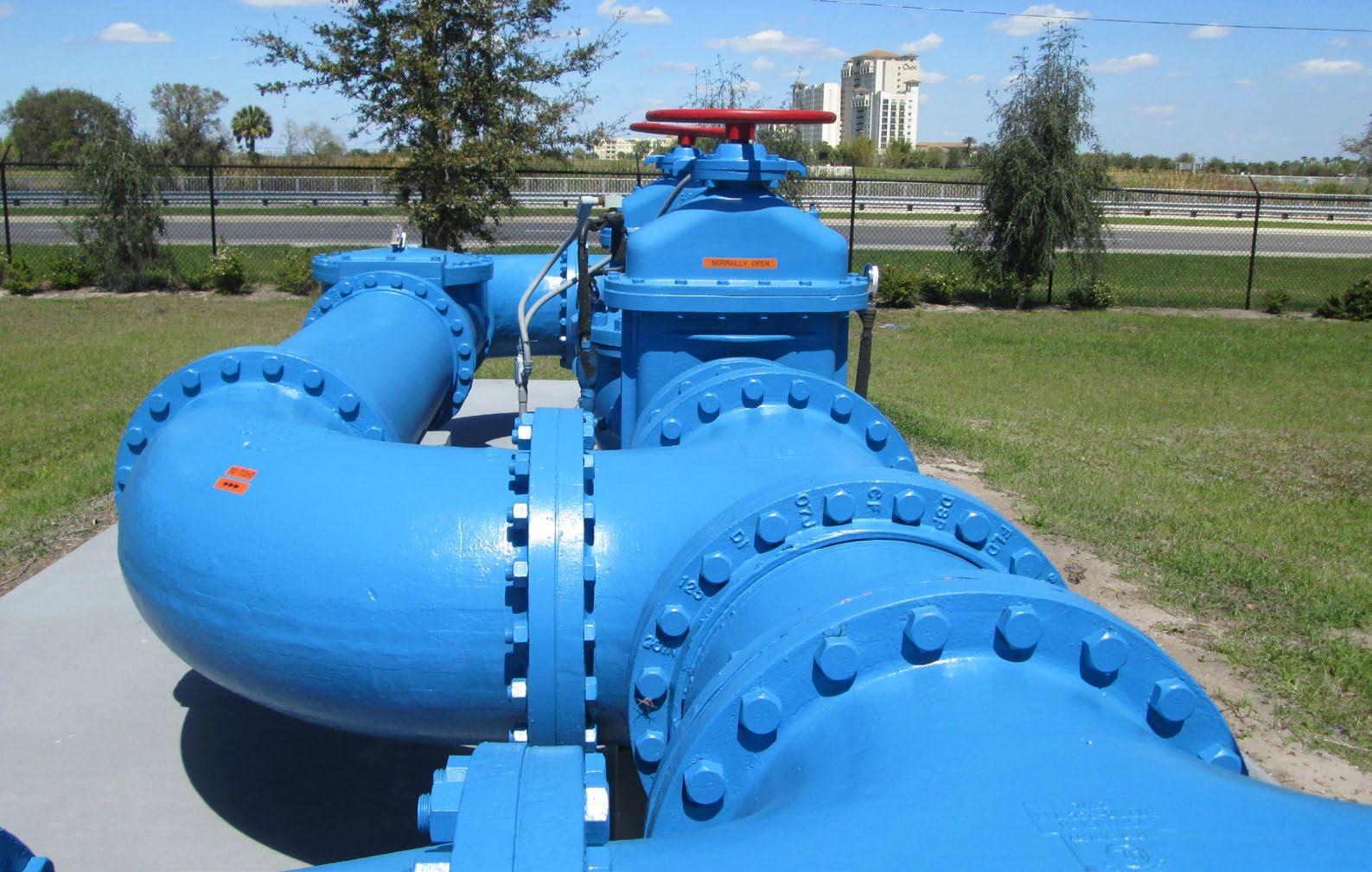
CHA provided a conceptual design for the transmission and optimization of the Cypress Lake water supply with existing potable water sources. We designed an expansive, combined hydraulic model that included all five utility systems with existing and future interconnects.
CHA deployed an asset inventory of the service lines within the potable distribution system. Using current as-builts from the client, our team integrated them into ArcGIS, and used a data collection system to create an asset inventory assessment and review for the client’s service line assets.
Perfluoroalkyl and polyfluoroalkyl substances (PFAS) are a part of a class of emerging contaminants and are synthetic chemicals widely used to manufacture consumer and industrial products. They are longlasting chemicals, often referred to as “forever chemicals” because they do not break down naturally. When left unmanaged, these chemicals seep into nature, contaminating food and water. Removing emerging contaminants from drinking water will take a significant investment in clean-up

technologies and comprehensive strategies to restrict the use of emerging contaminants wherever possible. The CWSRF and DWSRF programs provide dedicated funds to address emerging contaminants, including PFAS, that adversely impact the environment and public health in water, wastewater, stormwater, and nonpoint source pollution nationwide. The IIJA has authorized $10 billion to address emerging contaminants in our drinking and surface waters.

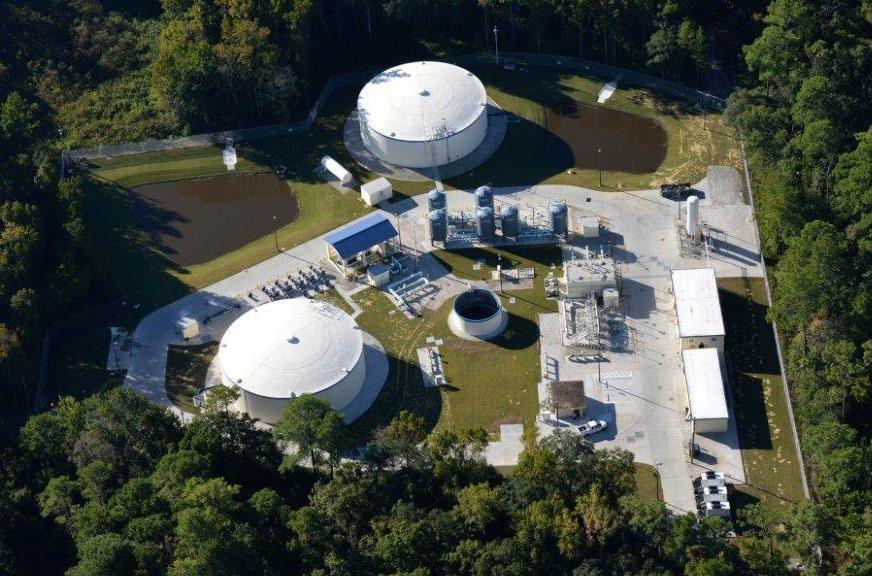
CHA provided preliminary and final design, permitting, and construction services for the $15M expansion to the 6.7 MGD water treatment plant using ozone and granular activated carbon (GAC). The project included expanding the site, accommodating a new plant, and maintaining existing treatment capacity and capabilities.
CHA assisted the City of Bowling Green in expanding its water treatment plant. Using an integrated membrane system to treat reservoir water fed by the Maumee River, we provided stability and maximum use of the water treatment technology.
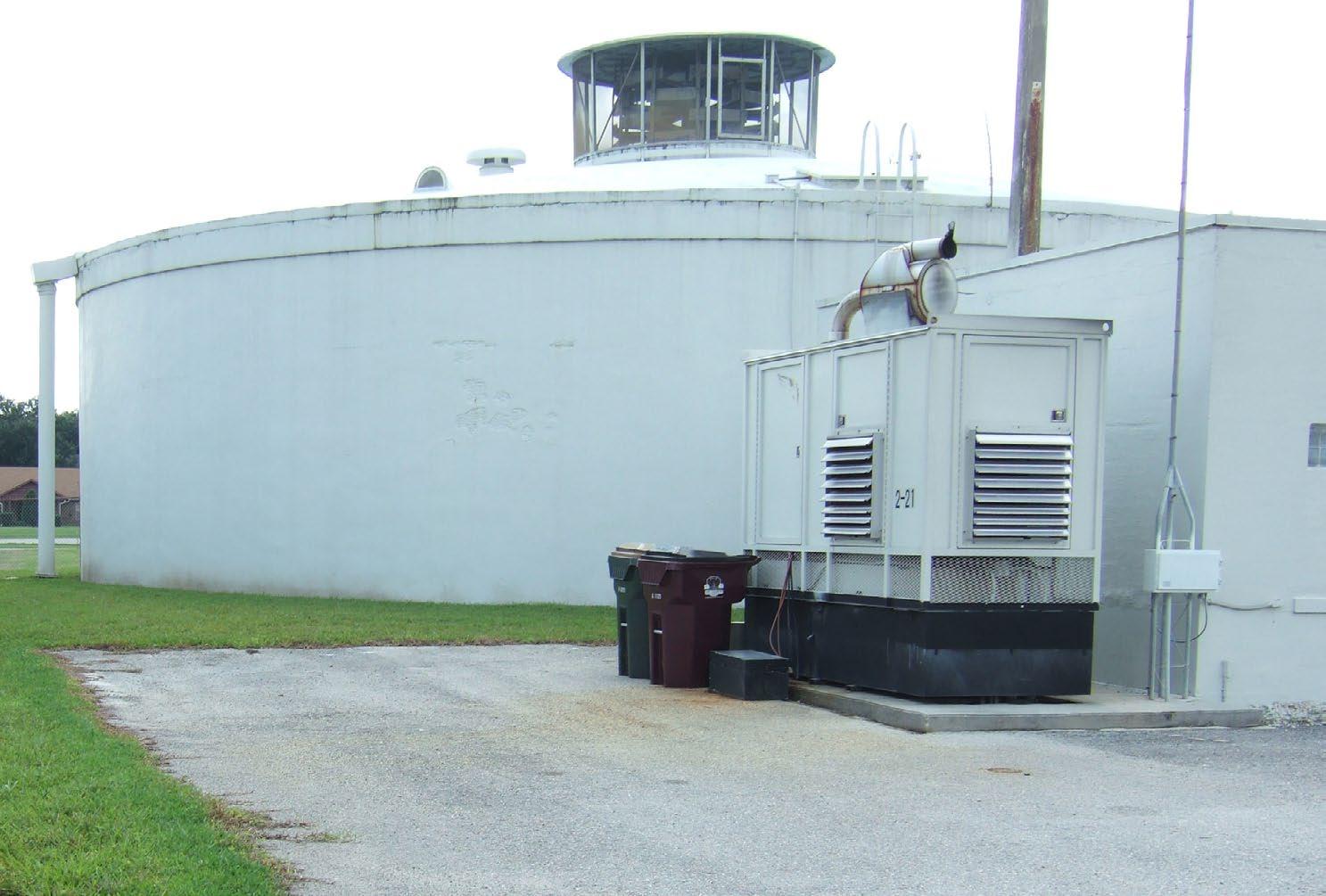
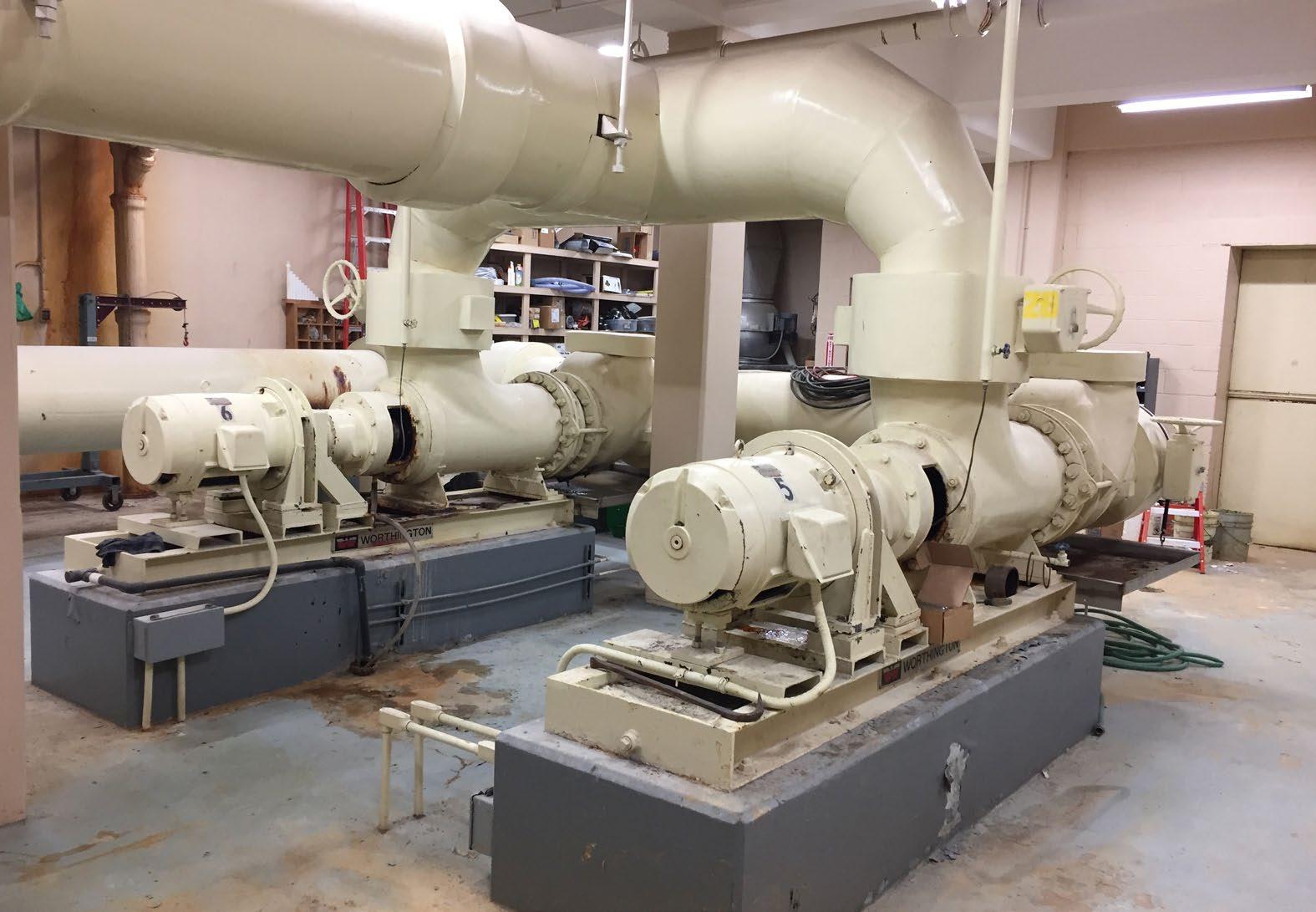
CHA assisted the City of St. Cloud in refining the preliminary design and cost estimates of four separate water treatment plants. The evaluation included the ion exchange treatment process.
Conveyance and the storage of clean water are important considerations when addressing aging water infrastructure across the U.S. Conveyance systems require miles and miles of adequate, carefully planned, engineered, and constructed underground piping.

As part of the IIJA, the Department of the Interior has specific funding for storage and conveyance projects, particularly in areas where water scarcity impacts communities. This funding includes $1.15B over five years to fund feasibility studies and construction projects.
Additional funding of $1.0B over five years is available for water recycling and reuse projects authorized in accordance with the Reclamation Wastewater and Groundwater Study and Facilities Act. This is in addition to a competitive grant program for largescale conveyance and storage projects that are part of any water recycling and reuse programs.
The Midsize and Large Drinking Water System Infrastructure Resilience and Sustainability program is another source of funding in which the Environmental Protection Agency (EPA) will award competitive grants to public water systems to increase resilience to natural hazards, extreme weather and to tackle the vulnerabilities of cybersecurity in conveyance and other water infrastructure installations. The IIJA authorizes $250M over five years to be appropriated through future regular appropriations cycles.
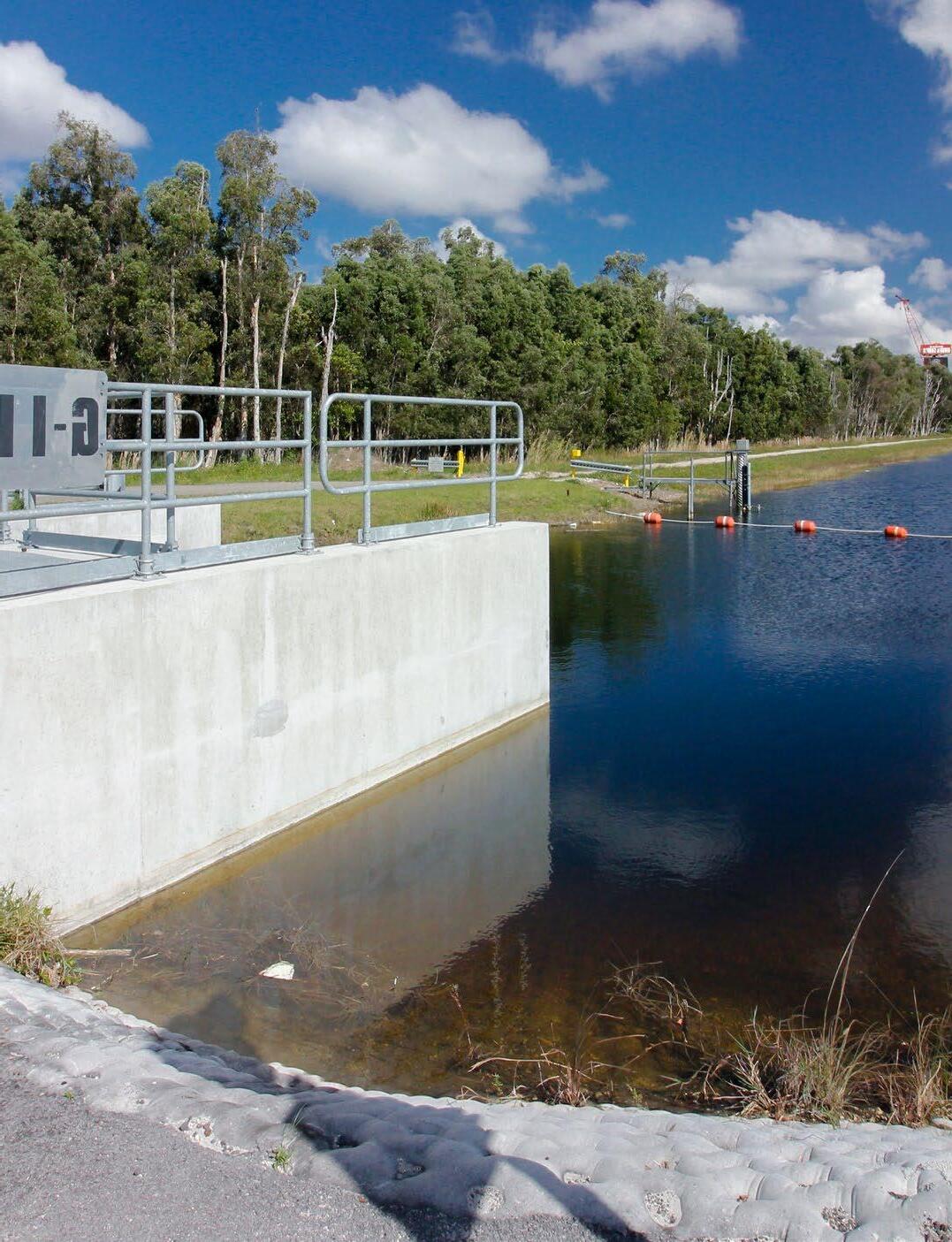
Plum Creek Transmission Main Project | New River Valley Regional Water Authority, VA
CHA provided a Preliminary Engineering Report, final design, construction contract administration, and inspection services to address immediate and future water needs, including provisions for a booster pump station allowing expansion in the future.
Booster Pump Station Interconnection Project | Saratoga County Water Authority (SCWA), NY
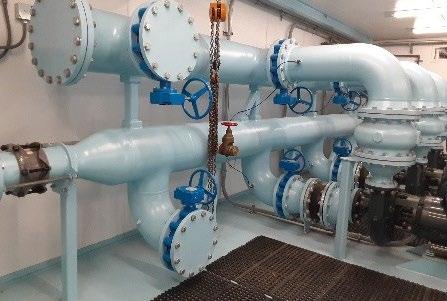
CHA provided water system improvement planning, design, and construction services to connect the town’s water system to an emergency water supply due to infrastructure failures.
Pineda Causeway Water Transmission Main Design | City of Melbourne, FL
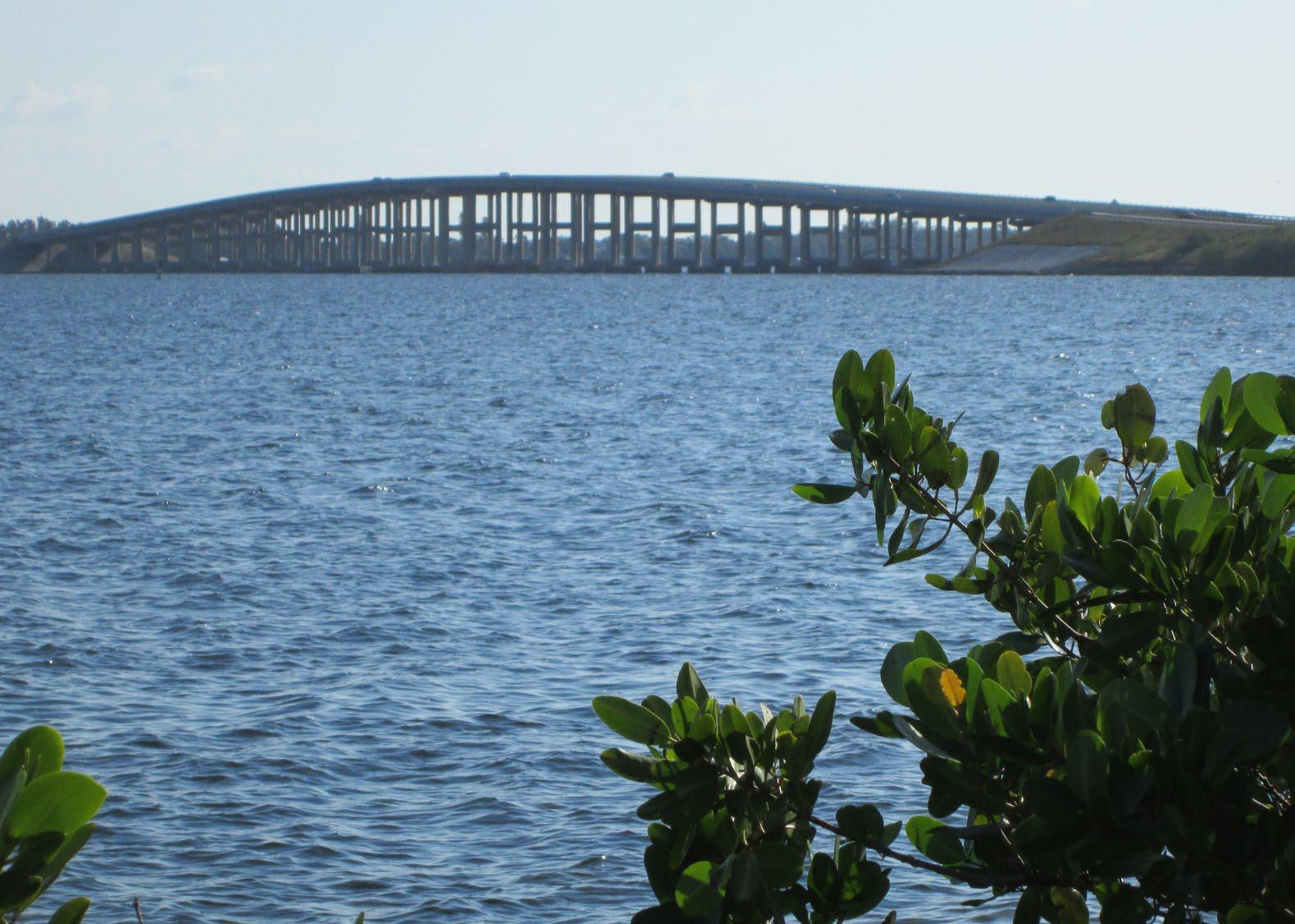
CHA designed and permitted an additional water main connecting Melbourne, FL, to the City of Cocoa’s water distribution system. 39,800 feet of 16-inch water main with nine long, subaqueous directional drills will cross beneath the Indian and Banana rivers.
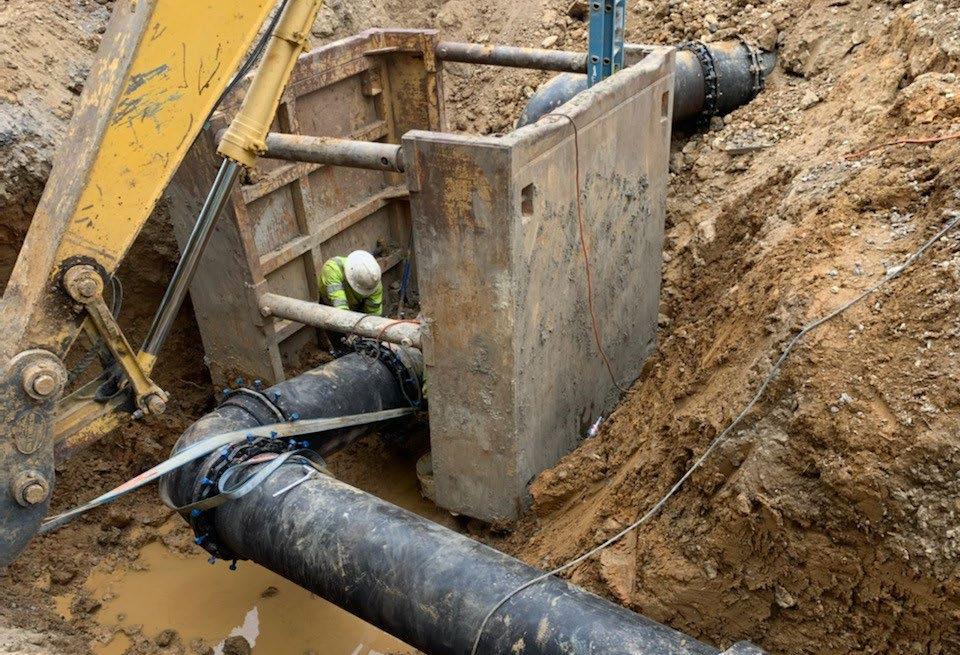
Ensuring water is clean and safe is one of the most important services each community can provide. Our water and wastewater teams provide comprehensive water services with a commitment to safety, reliability, and affordability. We help our clients to build environmentally sound and cost-effective water, wastewater, and stormwater projects while considering every unique environmental, water quality, permitability, or funding concern to meet all regulatory needs.
CHA’s technical expertise is diversified to cover all aspects of planning, modeling, design, and construction projects needed to support our clients and customers. We are at the forefront of technology to help our clients manage their systems, including solving emerging contaminant issues and supporting regulatory compliance-related issues, including lead service line inventory, verification, and replacement programs. We have designed water systems of all sizes using traditional and innovative low-impact design and best management practices for residential, commercial, institutional, and municipal clients. Our team is well-versed in the latest stormwater regulations and vigorously embraces a sustainable design philosophy in all our stormwater design, permitting, and planning work.
With decades of experience, we will bring your IIJA-funded projects and programs to a successful completion with our inspired talent, forward-leaning technology, and essential partnership. CHA is your trusted advisor and partner committed to responsibly improving the world we live in.
We know our clients often need to access multiple federal and state funding sources to construct a project. Our team partners with clients to identify relevant funding sources, assists in funding applications, and plans and designs projects with phasing opportunities, innovative implementation, constructability reviews, and value engineering to enable the most cost-effective solution.
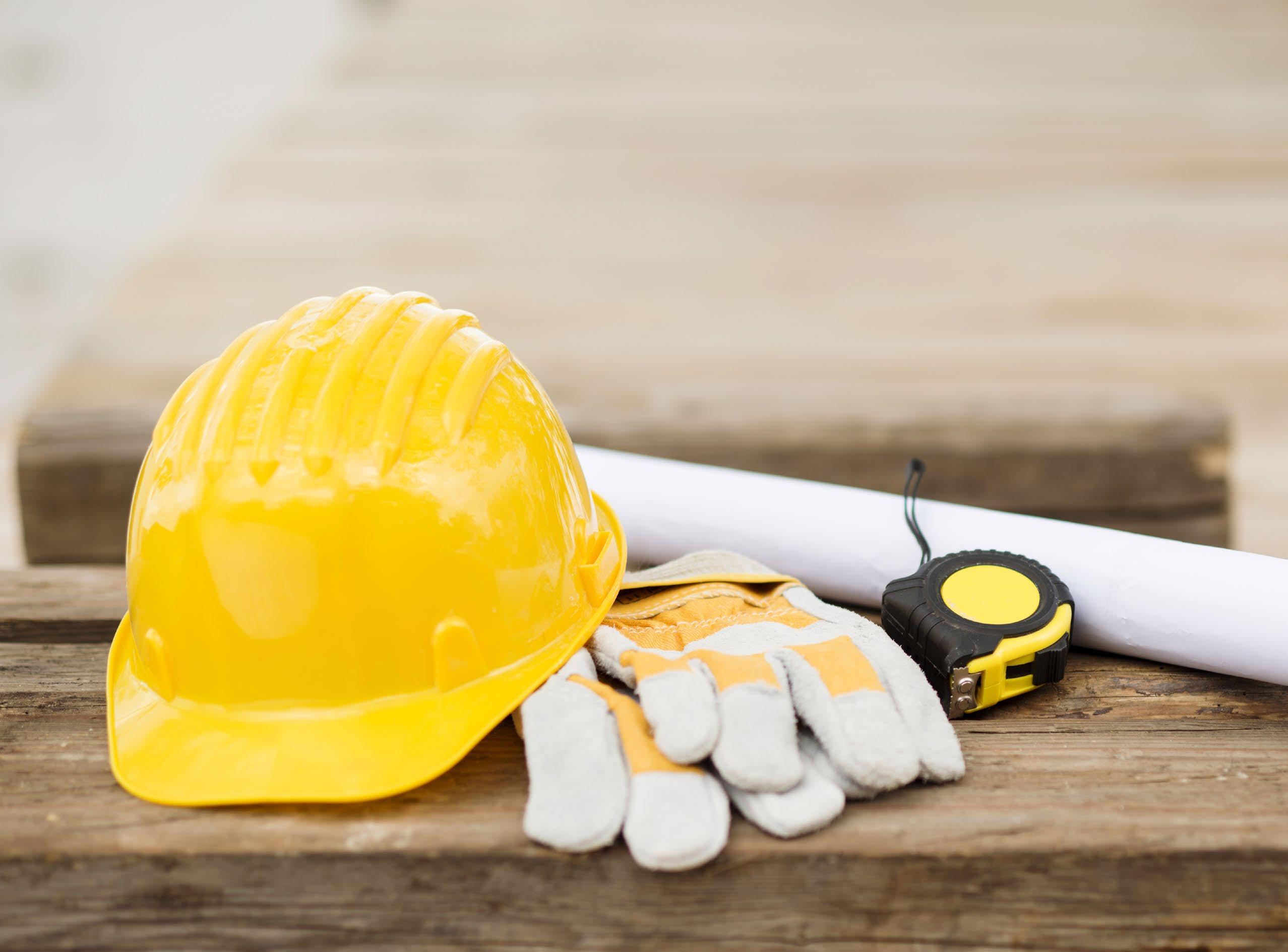
For more information, please contact:
WATER PROCESS AND TREATMENT
Eric Anderson, PE EAnderson@chacompanies.com


WASTEWATER PROCESS AND TREATMENT
Jennifer Miller, PE, PhD JHMiller@chacompanies.com

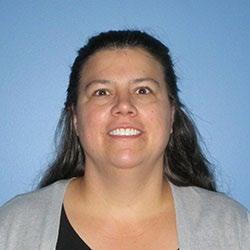
WATER AND WASTEWATER CONVEYANCE
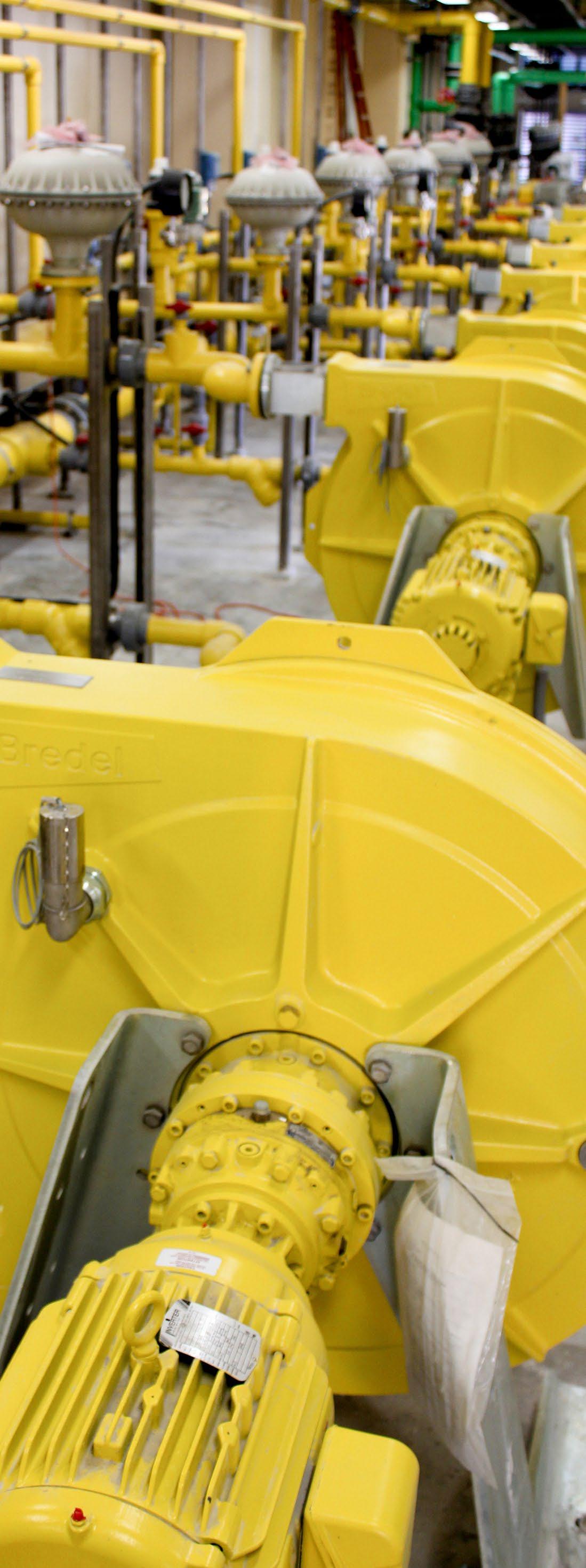
Stefano Ceriana, PE SCeriana@chacompanies.com
MASTER PLANNING AND MODELING
Parsa Pezeshk, PE, PhD PPezeshk@chacompanies.com



SEWER ASSESSMENT AND REHABILITATION
Aaron Frazier, PE AFrazier@chacompanies.com
EMERGING CONTAMINANTS AND WATER QUALITY

Aziz Ahmed, PE AAhmed@chacompanies.com
HORIZONTAL DIRECTIONAL DRILLING
Arnelio Alfonzo, PE AAlfonso@chacompanies.com
STORMWATER MANAGEMENT
Angela Baron-Ruiz, PE ABaron@chacompanies.com

FUNDING
Erin Crotty ECrotty@chacompanies.com
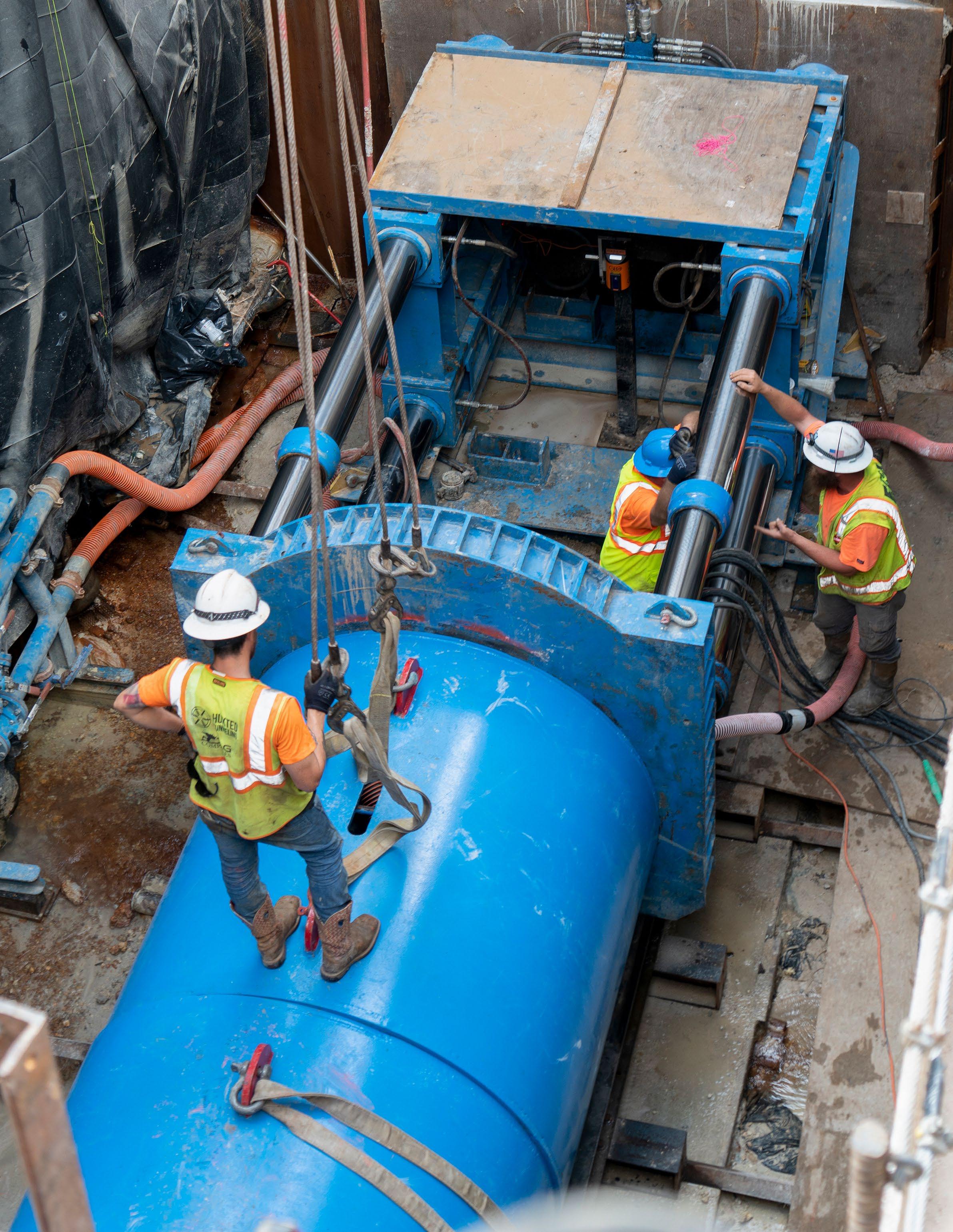
• Advanced Water Treatment, Storage, & Distribution System Design
• Asset Management
• Alternate Project Delivery (Design-Build, CMAR)
• Combined Sewer Overflow (CSO) Treatment & Control
• Collection System Flow Monitoring
• Construction Services
• Disinfection By-Product Control, Distribution Water Quality Modeling & Unidirectional Flushing Programs
• Environmental Permitting
• Funding & Grantsmanship
• Flood Management
• Hydrologic & Hydraulic Modeling
• Industrial & Municipal Wastewater Treatment
• Membrane Treatment, Granular Activated Carbon (GAC), & Ozone Treatments
• Open Channel & Bridge Hydraulics
• Potable Water Treatability Studies & Pilot Testing
• Program Management
• Pipeline Design
• Pump Station Design Startup, Operation & Maintenance Support
• Sewer Rehabilitation Design
• Sewer System Evaluation, Planning, & Design
• Sewer System Evaluation Surveys
• Smoke Testing
• Manhole Inspections
• Sewer System Televising
• Flow Monitoring
• Acoustic Pipeline Inspection

• Stormwater & Wastewater Planning & Management
• Supervisory Control & Data Acquisition (SCADA) Design
• Sustainable Solutions
• Temporary Drainage Design
• Wastewater Treatability Studies & Process Optimization
• Water & Wastewater Utility Planning
• Water Quality & Regulatory Compliance
• Water Recycling & Reuse
